By Eric Vandenbroeck
and co-workers
How Ukraine Can Take Back All Its
Territory
In recent days, the Russian
occupation authorities have likely ordered preparation for the evacuation of
some civilians from Kherson. They likely anticipate combat extending to the
city of Kherson itself. For too long, however, the global democratic
coalition supporting Kyiv has focused on what it should not do in the invasion
of Ukraine. Its main aims include not letting Ukraine lose and not letting
Russian President Vladimir Putin win—but also not allowing the war to escalate
to a point where Russia attacks a NATO country or
conducts a nuclear strike. These, however, are fewer goals than vague
intentions, reflecting the West's deep confusion about how the conflict should
end. More than seven months into the war, the United States and Europe still
lack a positive vision for Ukraine's future.
The
West believes Kyiv's fight is and wants Ukraine to succeed. But it is not
sure yet whether Ukraine is strong enough to retake all its territory. Many
Western leaders still believe that the Russian military is too large to be
defeated. This thinking has led the members of the pro-Ukrainian coalition to
define only their interim strategic military goals. They have not plotted out
the political consequences of a complete
Russian military collapse.
It is time to start: Ukraine can win big. The country has repeatedly
proved that it is capable of routing Russia. It first prevented Russia
from seizing Kyiv, Kharkiv, Chernihiv, Sumy, and the Black Sea coastline. It
succeeded again by halting Russia's concentrated offensive in the Donbas, the
eastern Ukrainian region comprising Donetsk and Luhansk Provinces, part of
which Russia has occupied since 2014. Most recently, Ukraine retook Kharkiv
Province in less than a week, broke through Russia's defensive lines in the south,
and began liberating parts of the east.
The West best joins
Kyiv in aiming for an unequivocal Ukrainian victory. It should recognize that
Ukraine's military is not just more motivated than Russia's but also better led
and better trained. To win, Ukraine doesn't need a miracle; it just needs the
West to increase its supply of sophisticated weaponry. Ukrainian forces can
then move deeper and faster into enemy lines and overrun more of Russia's
disorganized troops. Putin may respond by calling up additional soldiers,
but poorly motivated forces can only delay a well-equipped Ukraine's eventual
triumph. Putin will then be out of conventional tools
to forestall losing.
Somehow, the White
House is afraid to plan, drawing down military equipment more slowly than either U.S. stocks or the budget requires
(much to the ire of both Senate and House Armed Services Committee Democrats
and Republicans) and sitting on more than $2 billion in drawdown authority until it expired.
Hence outside
analysts worry that before facing defeat, Putin would try to inflict massive
civilian casualties on Ukraine, seeking to coerce the Ukrainian government into
making concessions or even surrendering. He might do so, Western analysts fear,
by continuously targeting densely populated areas in Ukrainian cities with
long-range missiles—as he has done this week—or through carpet-bombing raids.
But Putin lacks the resources to truly level Ukrainian cities. Russia's remaining
inventory of conventional missiles and bombs is large enough to cause
substantial damage, but it is not big enough to destroy swaths of Ukraine.
And Ukraine fight on even when Russia reduces cities to rubble. Putin
destroyed Mariupol, ruined large parts of Kharkiv, and launched thousands of
strikes on other cities and regions. The damage made Ukrainians more committed
to victory and reduced chances for negotiated settlements.
Many Westerners also
fear that Putin might act on his threats to
use nuclear weapons. But the West can intimidate Putin in ways
that will deter him from seriously contemplating such an attack, and a nuclear
strike might turn all global powers, not just the United States and Europe,
against him. It is ultimately unlikely that Putin will go nuclear. But if he
does, the West must ensure his plan backfires.
The United Nations
General Assembly has voted overwhelmingly to condemn Russia's attempts
to annex four regions of Ukraine:
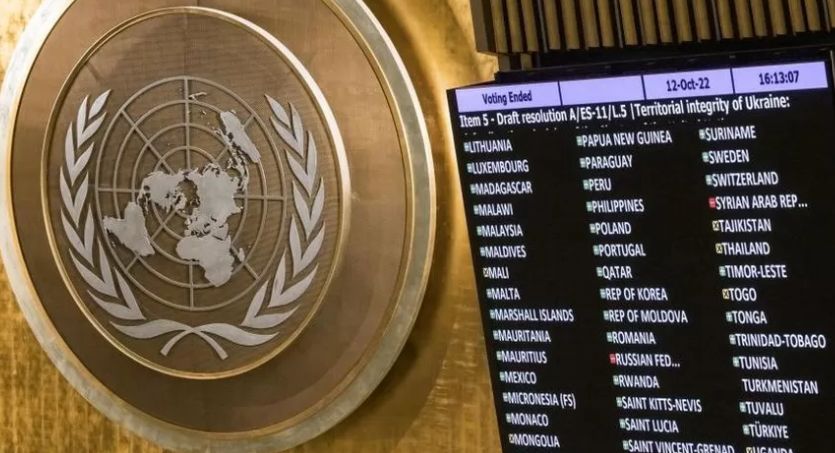
As Ukraine's
counteroffensive advances against an increasingly cornered Putin, it should
mainly focus on liberating territory that Russia has seized since February 24.
But a complete Ukrainian victory also entails freeing the parts of the country
Russia has occupied since 2014, including Crimea. It means that Ukraine
must reclaim its territorial waters and exclusive economic zones and complete
the Black Sea and Azov Sea without any compromises or conditions.
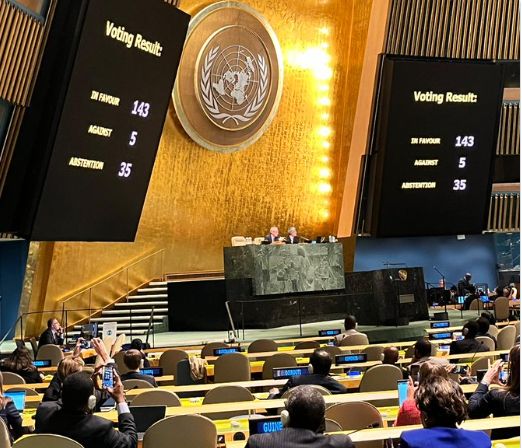
Russia's president
has increasingly staked his regime on conquering Ukraine, sacrificing his country's
economic growth and international reputation in the process. Such a broad
defeat could push Russian elites to remove him from power. Indeed, as the mass
of Putin's failures and Ukraine's achievements grow, Putin's fall may
become inevitable. This scares confident leaders, who worry that a power
struggle in Russia will breed dangerous instability. But it's hard to
imagine a Russia more difficult than the one led by Putin, given all the havoc
he has wreaked—in Ukraine and throughout the world. The international
community should welcome his departure.
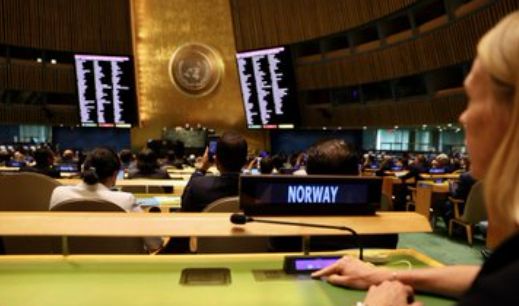
Advantage, Ukraine
Many Western
observers believe Ukraine will have to cede territory to Russia if it wants
peace. They are wrong; territorial gains will only embolden the Kremlin. Putin
decided to attack eastern Ukraine in 2014 because he succeeded in occupying
Crimea. He invaded the entire country because he managed to establish proxy
puppet regimes in the Donbas. Partial success motivates Putin to continue his
campaigns and seize more territory. The only way to stop the war and deter
future aggression is for the invasion to end with an unequivocal Russian
failure.
Winning everywhere
might seem overly ambitious, and it certainly won't be easy. But it is far more
possible than most outside observers realize. Ukraine, after all, has
repeatedly outperformed international expectations. In the war's opening
weeks, the country stopped Russia's blitzkrieg against the capital
and forced Moscow to retreat. Putin responded to this defeat by declaring
that he would regroup and focus on conquering the Donbas, which are filled with
the kind of open fields that favor Russia and its heavy artillery. And yet
Ukraine steadily wore Russia down, making it pay for every tract of land with
massive casualties. Eventually, Russia was forced to halt.
Ukrainian soldiers
put ammunition into a crate at a front line near Toretsk
in the Donetsk region on 12 October:
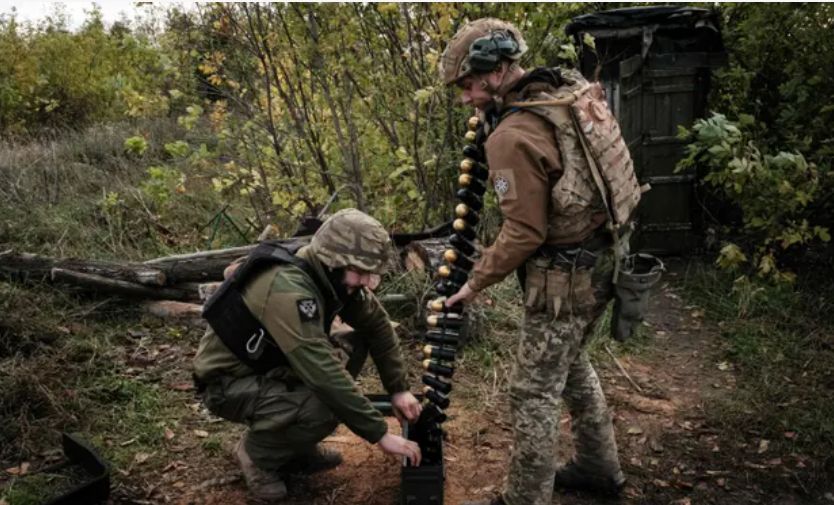
Ukrainians have also
proved that they can make Russia not just retreat but run. Ukraine's lightning
offense across Kharkiv in late September prevented Russia from even trying to
annex the province. Its early October victory in Lyman
has made Russia's position in the Donbas deeply uncertain. Ukraine is now
liberating villages adjoining Luhansk, the only Ukrainian province that Russia
entirely seized after February 24. And Ukrainian soldiers are moving closer to
Kherson, the first major city that Russia seized in its 2022 offensive.
Ukraine's repeat
successes are not coincidences. The country's military has structural
advantages over its Russian adversary. The Russian military is extremely hierarchical and overly centralized; its
officers cannot make critical decisions without permission from senior leaders.
It is awful at multidirectional planning, incapable of focusing on the
frontline without distracting from its operations in another. Ukraine, by
contrast, is quick to adapt, with a NATO-style "mission command"
system that encourages lower-ranking officers and sergeants to make decisions.
Ukraine has also carried out many successful multidirectional attacks. For
example, the country's counteroffensive in the south diverted critical Russian
resources away from Kharkiv, allowing Ukrainian units to advance easily.
Ukraine's advantages
are unlikely to dissipate. The Russian military continues to make unsound
decisions. A critical number of junior Russian officers were killed in the
war's first months; without them, Russia will find it harder to organize and
train its troops. Unlike Ukraine, Russia does not have a strong core of
noncommissioned officers who can help with the war. Although Russia's mass
mobilization will likely have an impact—the influx of new soldiers will
complicate Ukraine's efforts to advance—it will mostly yield inexperienced and
poorly trained men who neither want to fight nor know how to fight. Many will
run as they experience the shock of battle, coming under loud and devastating
artillery attacks. Many will die.
Bridge repair work is
seen on the collapsed part of the Kerch Strait bridge in Crimea:
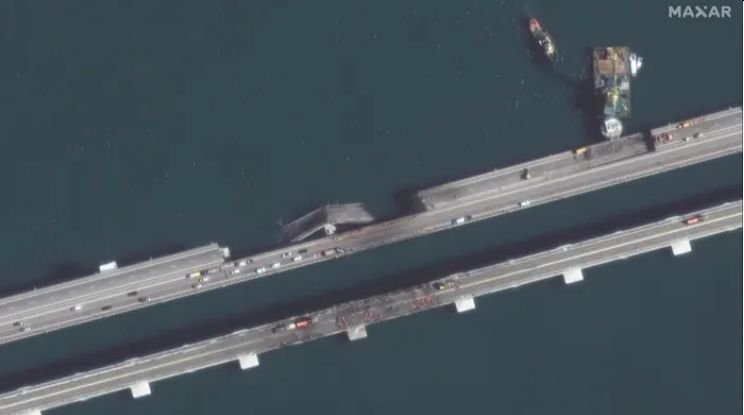
Ukraine has also suffered
severe casualties, and its soldiers will continue to fall in combat. But unlike
the Russians fighting a "special military operation" fueled by
Putin's imperial delusions, the Ukrainians are fighting a total war to save
their country. Ukraine continues to see a steady stream of motivated fighters;
Russia continues to see long lines of men fleeing the country. Ukrainians
respect their military commanders and President Volodymyr Zelensky, and the
military protects its soldiers and promotes its brightest. The Russian army,
however, mistreats its troops, showing little regard for their lives. This
helps explain why Russian soldiers fled from Kharkiv and are now running in
parts of the Donbas and Kherson. Armies that run once tend to run again.
Quality And Quantity
Russia, indeed has
more weapons than Ukraine. Despite months of losses, Moscow still possesses
sizable stockpiles of missiles, guns, and ammunition that it can use to attack
Ukrainian forces. But this is not the advantage that it may seem. Regarding
using weapons, Russia and Ukraine follow different philosophies: Ukraine
focuses on high-tech and precision-driven equipment, whereas Russia relies on
high-quantity but lower-precision systems. Because precision substantially
affects accuracy, Ukraine can do more with less. If Ukraine continues to
receive a steady supply of Western weapons, it will be able to negate Russia's
numerical superiority.
Long-range firepower
is one critical capability where Ukraine will need more support. The country
must have enough weapons and ammunition to outfit its brigades with artillery
systems and multiple rocket launchers that can reach behind enemy lines,
hitting ammunition depots and making it extremely hard for Russia to send
reinforcements. Ukrainian forces have already successfully used such Western
systems, especially U.S.-made High Mobility Artillery Rocket Systems (HIMARS).
But they will need even more equipment, including new, powerful weapons that
can hit deeper targets. If supplied, U.S.-made Army Tactical Missiles Systems
(ATCAMS) would prove particularly useful by allowing Ukraine to destroy Russian
battlefield positions up to 190 miles away. Ukraine must also have enough
weapons to simultaneously meet its operational requirements in at least two or
three regions, such as the east and south, while holding off the Russians.
Suppose Ukraine maintains an initiative and equally strong presence along the
war's long lines of contact. In that case, it can be assured of hitting
Russia in the areas where the Russian military is weakest.
But firepower is not
the only thing that Ukraine needs. To defeat Russia, Ukraine must be equipped
with more tanks and armored personnel carriers, which it used to significantly
affect in retaking Kharkiv Province. Ukrainian artillery units will also need
enough counterbattery radars, such as AN/TPQ radar systems, to swiftly detect
incoming fire. Ukraine needs more midrange air-defense units, such as the
National Advanced Surface-to-Air Missile Systems (NASAMS), to protect its
troops and cities as they come under Russian bombardment. It will need to
sustain all these capabilities, so Ukraine's military must set up ammunition
and spare-parts facilities around its western borders. It must also build
comprehensive support facilities closer to the frontlines, where it can quickly
repair damaged weapons and equipment.
Ukraine has already
proved capable of downing Russian aircraft and defying predictions that Russia
would gain air superiority. Ukraine has also been able to damage the Russian
navy. The country's successful strike against Russian navy installations and
vessels, including the Moskva cruiser—the Russian Black Sea
Fleet's flagship—helped push Russia's ships farther away from the Ukrainian
coast. But sea access denial is an ongoing process, not a one-time achievement,
and Ukraine will need help if it wants to break Russia's blockade fully. The
West must supply the country with more coastal missiles, unmanned systems, and
detailed intelligence so Ukraine can eventually regain full access to its seas.
The West has reasons
to supply Ukraine that go beyond just this conflict. The war has given NATO a
rare chance to test its equipment in a real-time, high-intensity operational
environment. The United States and Europe can learn invaluable lessons from how
their weapons perform, and the more gear they provide, the more knowledge they
will acquire. Together, the West and Ukraine can figure out which weapons
systems need tweaking and which work best, and Kyiv can use the most effective
ones to keep pushing Russian forces back.
Saving The World
Putin is aware that
Russia is losing on the battlefield, and his not-so-veiled threats to use
nuclear weapons are a transparent attempt to halt Western assistance. He likely
knows that these threats will not stop Ukraine. But if Putin follows through on
them, it would deter the West from helping Ukraine and shock Kyiv into
surrendering.
However, breaking the
nuclear taboo would devastate the Kremlin in ways that simply losing the war
wouldn't. Tactical nuclear weapons are difficult to target, and the fallout can
extend in unpredictable directions, meaning a strike could seriously damage
Russian troops and territories. Ukrainians would also fight on even if hit by a
nuclear attack—for Ukrainians, there is no scenario worse than Russian
occupation—so such a strike would not lead to Kyiv's surrender. And if Russia
goes nuclear, it will face various severe retaliatory measures, some of which
may have consequences beyond the battlefield. China and India have so far
avoided backing Ukraine or sanctioning Russia, but if the Kremlin launches a
nuclear attack, Beijing and Delhi may join the West's anti-Russian coalition,
including by implementing severe sanctions and banning relations with Russia.
They may even provide military assistance to Ukraine. For Russia, then, the
result of nuclear use would be not just defeat but even more international
isolation.
Putin, of course, is
capable of making terrible choices, and he is desperate. Neither Ukraine nor
the West can discount the possibility that he will order a nuclear attack. But
the West can deter him by clarifying that, should Russia launch such a strike,
it will directly and conventionally enter the conflict. Avoiding NATO
involvement is one of the main reasons Putin continues to threaten a nuclear
attack—Putin knows that if Russia cannot prevail against Ukraine, it has no
chance against NATO—and he is, therefore, unlikely to do something that would
bring the bloc in. That's especially true given the speed with which NATO would
win. Ukraine's counteroffensive is moving comparatively slowly, giving Putin
space to use his propaganda apparatus to manage public perception of the
events. Once NATO joined, he would have no time to shield his reputation from
the Russian military's stunning collapse.
NATO has no shortage
of ways to threaten Russia seriously without using nuclear weapons. It might
not even need a land operation. The Western coalition could credibly tell the
Kremlin that it would hit Russian capabilities with direct missile strikes and
airstrikes, destroying its military facilities and disabling its Black Sea
Fleet. It could threaten to cut all its communications with electronic warfare
and arrange a cyber-blackout against the entire Russian military. The West
could also threaten to impose totalizing and complete sanctions (no exceptions
for energy buys), which would quickly bankrupt Russia. Especially if taken
together, these measures would cause irreparable, critical damage to the
Russian armed forces.
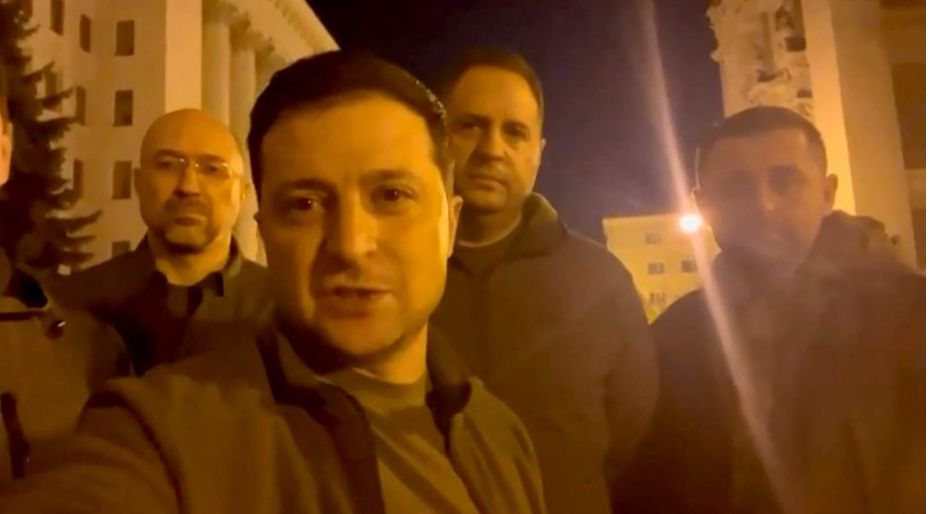
What the West should
not and cannot do is be cowed by Russia's nuclear blackmail. If the West stops
aiding Ukraine because it fears the consequences, nuclear states will find it
much easier to impose their will on nonnuclear ones in the future. If Russia
orders a nuclear strike and gets away with it, nuclear states will have almost
automatic permission to invade lesser powers. In either scenario, the result
will be widespread proliferation. Even poorer countries will plow their
resources into nuclear programs for an understandable reason: It will be the
only sure way to guarantee their sovereignty.
Crime And Punishment
With enough Western weapons,
Ukraine will continue breaking through Russian defenses. It will use long-range
rockets to destroy command posts, depots, and supply lines, making it
impossible for Russia to reinforce its battered troops properly. It will shoot
down Russian aircraft, preventing the Russian air force from defending its
positions. It will keep sinking Russian naval craft. And it will be helped
along the way by the Russian military's many deficiencies: its intense
centralization, emphasis on punishing its forces for mistakes rather than
learning from them, and its highly inefficient combat style. In the face of
mounting setbacks, Russian morale will eventually collapse. The country's
soldiers will be forced back home.
Ukraine's liberation
of Crimea and the parts of the Donbas that Russian proxies seized in 2014 will
come next. And after Ukraine's victories elsewhere, these operations are
unlikely to be all that taxing. When Ukrainian forces reach those regions, the
Russian military will likely be too exhausted to defend them seriously. Many
Russian-controlled Donbas male residents will already have been killed on the
frontlines. The survivors (which will likely include most of the region's
remaining male population) are unlikely to be loyal to the Kremlin, given what Putin
has put them through. Some Western observers may consider Crimea a special case
and encourage Ukraine not to press forward. Still, although it has been under
Russian control longer, its annexation remains as illegal today as it was in
2014. International law should know of double standards.
The liberation of
Crimea and the Donbas should include a reintegration campaign. Because the
periods of Russian occupation, with their attendant aggressive propaganda, have
lasted so long, residents will need to receive social, legal, and economic
assistance from Ukraine as part of reconciliation efforts. These efforts will
make for a more delicate operation. As the Ukrainian government restores its
governance, it must show residents that Kyiv can provide stability and the rule
of law, unlike Moscow.
Meanwhile, the world
must prepare for what Ukrainian wins in these long-occupied regions will mean
for Putin. Annexing Crimea and creating puppet states in the Donbas were two of
his signature achievements, and his regime may not survive losing them. The
world may want to prepare even before Ukraine moves into Crimea; Putin's regime
will be endangered if Ukraine retakes just the areas Russia seized after
February 24. Losing almost all the land it just annexed, would be a humiliating
failure for Moscow. It may get Russia's elites to finally realize that their
president's obsession with war is deeply unproductive and will rise against
him. It would not be the first time a leader has been pushed out of power in
Russian history.
Germany's delayed
delivery of an IRIS-T Surface-Launched-Missile (SLM) system. It is the first of
four methods expected to be delivered to Ukraine next year:
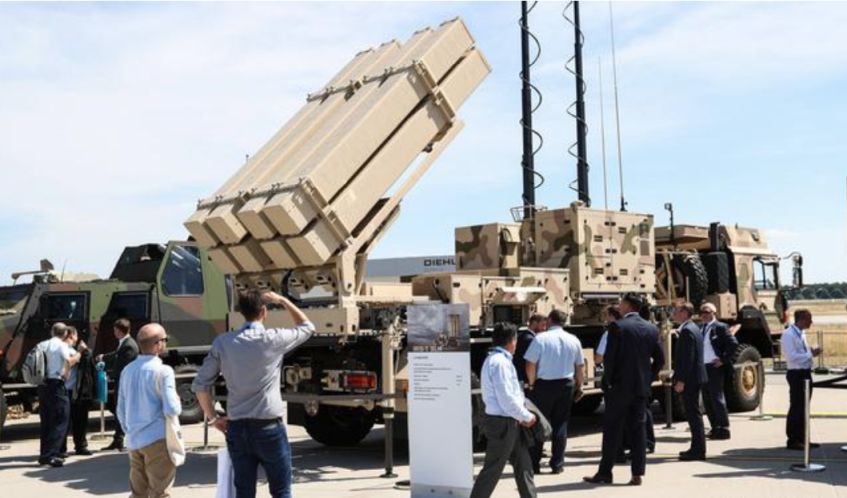
Once Putin is gone,
the world must focus on making Russia pay restitution. Moscow should be held
fully responsible for its damage to Ukraine, providing reparations to the
country and the Ukrainian people. Ideally, after regime change, Russia will do
this of its own volition. But if it doesn't, the West can redirect hundreds of
billions of dollars in frozen Russian assets to Ukraine as collateral. Russia
must release all prisoners of war and all Ukrainian civilians it has detained
or forcibly moved to Russia. It needs to return the thousands of children it
kidnapped during the invasion and occupation. Finally, Ukraine and its partners
must demand that Moscow hand Putin, other senior Russian leaders, and any figures
involved in wartime atrocities to a globally recognized criminal tribunal. The
West should refuse to lift any sanctions on Moscow until these demands are met.
They must demonstrate that extreme aggression, genocide, and terror are
unacceptable.
This program of
penance and justice may seem frightening to international leaders, who believe
it could cause instability in Russia. Some analysts even say that the Russian
Federation could disintegrate, leading to catastrophic consequences for the
rest of the world. Many international leaders had similar fears when the Soviet
Union collapsed, including former U.S. President George H. W. Bush, who
traveled to Ukraine in 1991 to try to stop the country from seceding from
Russia. But these leaders were wrong. Despite the war, Ukraine has become a
symbol of democracy worldwide. Many other post-Soviet states have grown far
wealthier and freer since 1991. If Russia were weakened today, the net outcome
would be similarly positive. Its reduced capabilities would make it harder for
Moscow to threaten as many people as it does now. And it is simply unjust to
try to keep the country's residents under the foot of a paranoid, genocidal
dictator.
Indeed, Ukraine may
well need a weaker Russia to protect its wins. At a minimum, it will need
substantive regime change to feel safe. Putin's commitment to eliminating
Ukraine and forcing it back into his empire is so extreme that a Ukrainian
victory cannot be secure as long as he is in power. And Russia is full of
ruthless leaders with a similarly distorted moral compass and a similarly
imperialistic worldview. Until Ukraine is allowed to join NATO, it will
have to build a powerful military, becoming—as Zelensky put it—a "big
Israel." This is not ideal, and it will be costly. Ban equally in the near
term; it will be the only way a victorious Ukraine can ensure long-lasting
peace.
Promising today is
that dozens of Ukraine's allies have pledged to send more military aid
to Ukraine after more than 50 western countries met In Brussels on
Wednesday, 12 October. Ukraine's defense minister, Oleksiy Reznikov, lauded the
arrival of the first of four Iris-T defense systems from Germany and
"expedited" delivery of the sophisticated national advanced
surface-to-air missile systems (Nasams) from the US.
"A new era of air defense has begun in Ukraine," Reznikov
tweeted. "Iris-Ts from Germany
are already here. Nizams are coming. This is only the beginning. And we need
more." The UK has said it will donate cutting-edge air defense
weaponry capable of shooting down cruise missiles. It did not say how many Amraam rockets would be sent to Ukraine but said they would
be used with Nizams.
For updates click hompage here